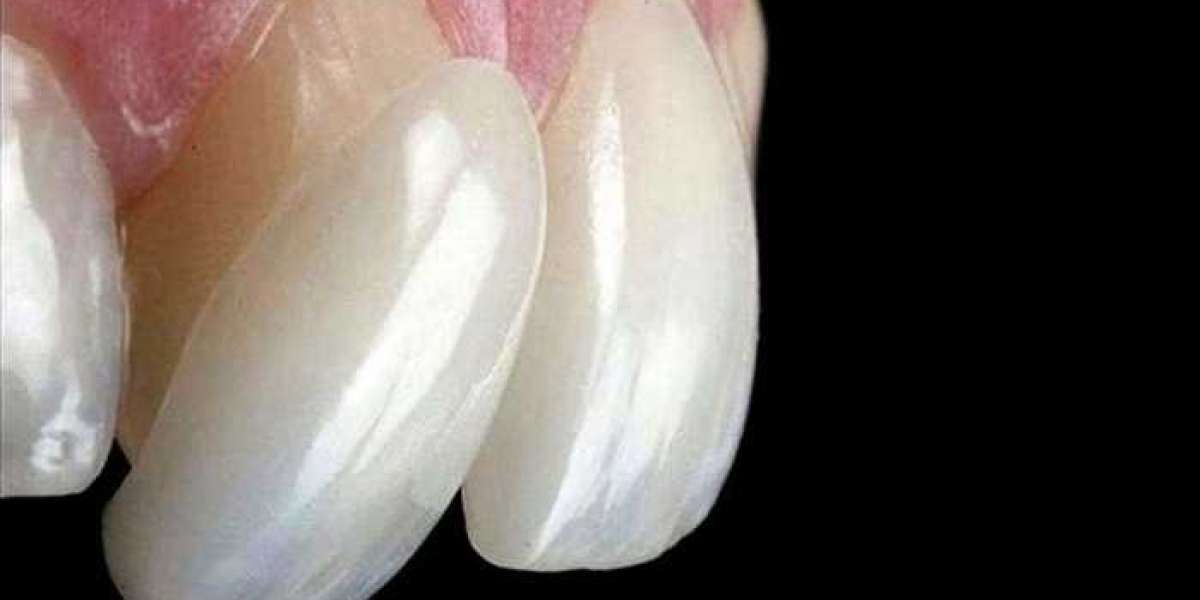Once you've enhanced your smile, it’s essential to know the foods to avoid with dental veneers to protect your investment. Dental Veneers in Dubai are designed to be durable and stain-resistant, but they’re not indestructible. The wrong foods can cause chipping, staining, or weakening of the veneer or the tooth underneath. By adjusting your diet and avoiding harmful eating habits, you can extend the life of your veneers and keep your smile looking flawless for years.
Hard Foods That Can Crack or Chip Veneers:
One of the most important things to avoid after getting veneers is eating overly hard foods. Veneers are thin shells of porcelain or composite resin that, while strong, can crack under pressure.
Hard candies like jawbreakers or peppermints
Ice cubes, especially chewing them habitually
Nuts such as almonds or pistachios (particularly if eaten whole)
Popcorn kernels that haven’t fully popped
Crusty bread or toasted bagels with very hard exteriors
It’s best to either avoid these foods entirely or chew them with your back molars to reduce pressure on the veneered teeth.
Sticky Foods That Can Loosen Veneers:
Another category of foods to avoid with dental veneers includes anything that’s overly sticky. These foods can tug on veneers or weaken the bonding agent that keeps them in place.
Chewing gum (especially if it's sugar-laden and extra sticky)
Taffy, caramel, and other chewy candies
Gummy vitamins or fruit snacks
Sticky rice or dried fruits like figs and dates
While occasional exposure won’t necessarily harm veneers immediately, frequent chewing of sticky foods increases the risk of loosening the veneer’s seal or causing it to shift.
Stain-Causing Foods and Beverages:
Even though porcelain veneers are more stain-resistant than natural teeth, the surrounding enamel isn’t. Over time, consuming highly pigmented foods and drinks can cause uneven discoloration between your veneers and your natural teeth.
Red wine, coffee, black tea, and dark sodas
Berries like blueberries, blackberries, and cherries
Tomato-based sauces like marinara or ketchup
Curry and soy sauce due to their dark, staining pigments
To reduce staining risk, drink colored beverages with a straw, rinse with water after meals, and brush soon after consuming such items when possible.
Acidic Foods That Erode Enamel:
While veneers themselves don’t decay, the teeth underneath still can. Acidic foods and drinks can weaken enamel and irritate gums, which may cause long-term issues that affect the stability of your veneers.
Citrus fruits like lemons, limes, oranges, and grapefruits
Vinegar-based salad dressings
Pickled foods or anything with high acidity
Carbonated beverages including sparkling water and soda
Eating these occasionally is fine, but try to rinse your mouth with water afterward to neutralize the acid and wait 30 minutes before brushing to protect your enamel.
Foods That Require Aggressive Biting:
Many people damage Dental Veneers by biting into tough or chewy items with their front teeth. The front veneers are particularly vulnerable because they handle more direct force.
Corn on the cob—cut kernels off before eating
Meat on the bone such as ribs or chicken wings
Whole apples, pears, or raw carrots (slice them instead)
Tough cuts of steak or chewy bagels
Use a knife and fork to cut food into smaller, manageable pieces, and try to chew using your back teeth to protect the front veneers from excessive pressure.
Habits and Practices Beyond Food:
In addition to avoiding specific foods, certain eating-related habits can impact the longevity of your veneers. Small daily decisions can make a big difference in maintaining your perfect smile.
Don’t bite fingernails or chew on pens and straws
Avoid opening packages with your teeth
Cut back on sugary snacks to prevent decay in exposed areas
Use a mouthguard at night if you grind your teeth during sleep
Being mindful about what you eat and how you eat it goes a long way in protecting your veneers. Practicing good oral hygiene and making smart dietary choices ensures your veneers last as long as possible—often 10 to 15 years or more.




